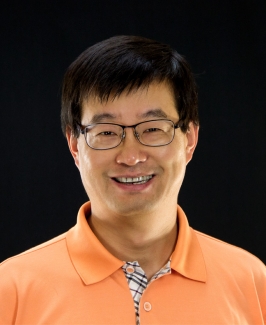The DoD announced today the selection of nine distinguished faculty scientists and engineers for the 2022 Class of Vannevar Bush Faculty Fellows (VBFF). This highly competitive Fellowship is named in honor of Dr. Vannevar Bush, who directed the Office of Scientific Research and Development after World War II. In line with Dr. Bush’s vision, the Fellowship aims to advance transformative, university-based fundamental research.
“The Vannevar Bush Faculty Fellowship is the Department’s most prestigious research grant award,” said Dr. Jean-Luc Cambier, the VBFF Program Director. “It is oriented towards bold and ambitious ‘blue sky’ research that will lead to extraordinary outcomes that may revolutionize entire disciplines, create entirely new fields, or disrupt accepted theories and perspectives.” JILA and NIST Fellow Jun Ye has been distinguished as one of the 2022 Fellows.
The 2022 Class will join a cadre of approximately 50 current Fellows who conduct basic research in areas of importance to the DoD, including materials science, cognitive neuroscience, quantum information sciences, and applied mathematics, among other disciplines. In addition to their research projects, Fellows can also engage directly with the DoD enterprise to collaborate with DoD laboratories and share insights with DoD leadership and the broader national security community.
The Vannevar Bush Faculty Fellowship is sponsored by the Basic Research Office within the Office of the Under Secretary of Defense for Research and Engineering. The grants are managed by the Office of Naval Research. For the FY 2022 competition, more than 300 white papers were received. Each Fellow will receive up to $3 million over the five-year fellowship term to pursue cutting-edge fundamental research projects. More information about the Vannevar Bush Faculty Fellowship is available on the Basic Research Office website: https://basicresearch.defense.gov.https://basicresearch.defense.gov.
- Written by the Department of Defense



 The Physics Frontiers Centers (PFC) program supports university-based centers and institutes where the collective efforts of a larger group of individuals can enable transformational advances in the most promising research areas. The program is designed to foster major breakthroughs at the intellectual frontiers of physics by providing needed resources such as combinations of talents, skills, disciplines, and/or specialized infrastructure, not usually available to individual investigators or small groups, in an environment in which the collective efforts of the larger group can be shown to be seminal to promoting significant progress in the science and the education of students. PFCs also include creative, substantive activities aimed at enhancing education, broadening participation of traditionally underrepresented groups, and outreach to the scientific community and general public.
The Physics Frontiers Centers (PFC) program supports university-based centers and institutes where the collective efforts of a larger group of individuals can enable transformational advances in the most promising research areas. The program is designed to foster major breakthroughs at the intellectual frontiers of physics by providing needed resources such as combinations of talents, skills, disciplines, and/or specialized infrastructure, not usually available to individual investigators or small groups, in an environment in which the collective efforts of the larger group can be shown to be seminal to promoting significant progress in the science and the education of students. PFCs also include creative, substantive activities aimed at enhancing education, broadening participation of traditionally underrepresented groups, and outreach to the scientific community and general public.